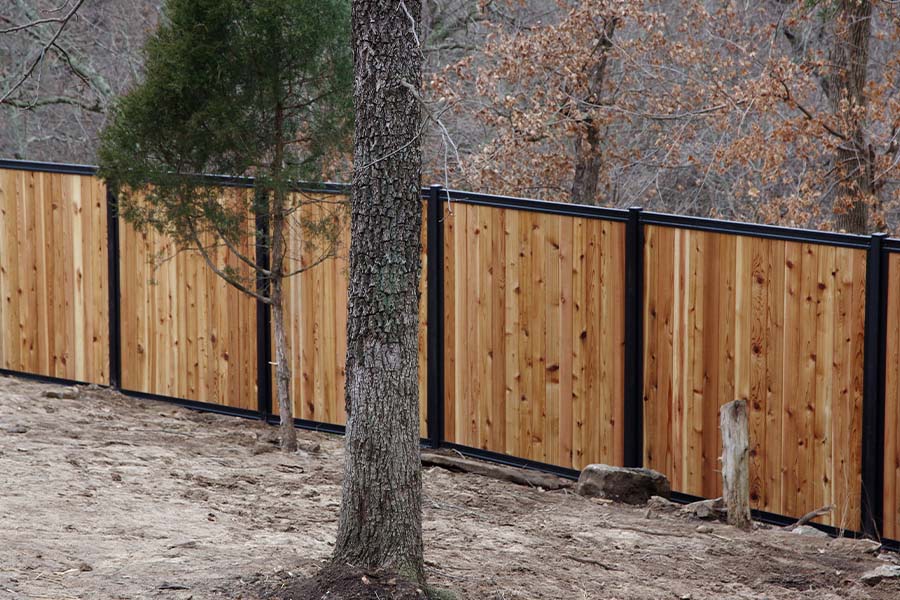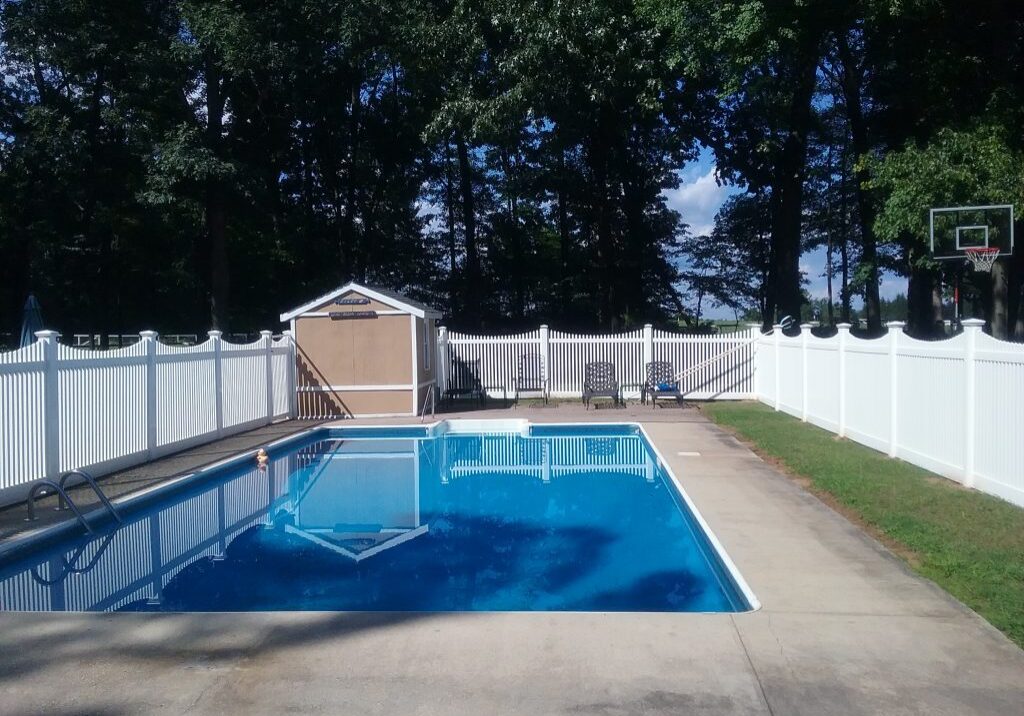All Categories
Featured

When it involves picking the appropriate fencing product for your property, wood, plastic, and light weight aluminum are among the most preferred choices. Each product supplies unique advantages that match different demands, choices, and spending plans. Recognizing the benefits and drawbacks of each type can assist you make an informed choice based on your concerns, whether that's visual allure, durability, or upkeep needs. Below, we damage down the benefits and downsides of these three usual secure fencing products.
Wood Secure Fencing. Pros:
Aesthetic Appeal: Wood fences supply an all-natural, classic appearance that enhances most kinds of landscaping and design. They can be conveniently personalized with paint or stain, offering you the freedom to produce the ideal color and finish for your home. Convenience: Timber can be utilized to create a range of fence styles, from traditional picket fences to a lot more modern-day layouts like privacy fencings or rustic ranch-style fencings. If your requirements change, it's easy to add or change to over time. Affordability: Timber is usually more affordable than plastic or aluminum, making it an eye-catching option for property owners on a budget plan. The preliminary price of a wood fencing is normally reduced than the other products. Disadvantages:

Upkeep Needs: Timber fencings need regular maintenance, including staining, securing, or painting to safeguard them from weathering, rot, and insect damage. Without appropriate care, timber can degrade rapidly. Resilience: Wood is susceptible to damage from pests like termites, and it can warp, fracture, or split in time as a result of direct exposure to the components. In locations with severe weather, wood may require to be replaced extra frequently than other products. Restricted Lifespan: While wood fences can last for lots of years with correct care, they usually have a much shorter life expectancy than plastic or light weight aluminum fences. Plastic Fence. Pros:
Reduced Upkeep: Among the most significant benefits of plastic fence is its reduced upkeep needs. Unlike timber, plastic doesn't require to be repainted, discolored, or sealed. It's resistant to fading, cracking, or warping, making it perfect for house owners that desire an easy fence. Durability: Plastic fencings are resistant and very resilient to the elements, consisting of UV rays, rain, and humidity. They're also resistant to parasites, such as termites, that can harm timber fences. Range of Styles: Plastic fences can be found in a wide range of designs and shades, and several resemble the look of wood without the maintenance disadvantages. You can pick from privacy fences, picket fences, and even more to suit your needs. Lengthy Life expectancy: With appropriate treatment, vinyl fences can last years, much longer than timber fencings, and they include service warranties that give peace of mind. Disadvantages:
Higher Initial Expense: While plastic fences can save cash on upkeep throughout the years, they tend to have a greater ahead of time price than wood fencings, which might be a deterrent for some customers. Restricted Customization: While vinyl fences are offered in a range of designs and colors, they lack the modification versatility that wood offers. You're restricted to the pre-designed panels readily available, which might not suit every distinct visual. Prospective for Cracking in Cold Climates: In severe cold temperatures, plastic fencings can end up being brittle and may split under effect, making them less suitable for areas with freezing winter seasons. Light weight aluminum Fencing. Pros:
Durability and Strength: Light weight aluminum is a lightweight yet solid material that withstands rust and rust, making it suitable for seaside areas or locations with high moisture. Aluminum fences call for marginal maintenance and can endure the aspects for years. Visual Appeal: Light weight aluminum fences provide a sleek, contemporary look. They are available in a selection of decorative styles and can be used to create a much more contemporary or elegant search for your home. Reduced Maintenance: Aluminum fences do not require paint or sealing, and they're resistant to rust and corrosion, making them extremely low upkeep gradually. Safety: Aluminum fencings give a greater level of safety and security contrasted to vinyl or timber fences due to their tough building and construction. They can be geared up with locks and gates to offer a safe border around your home. Cons:

Cost: Light weight aluminum fences are often much more costly than wood or plastic fencings, both in terms of materials and installation costs. This greater rate factor can be a drawback for budget-conscious home owners. Much Less Privacy: Aluminum fencings usually have a more open layout, with pickets spaced apart to enable exposure through the fencing. This may not be the best choice for your residential property if personal privacy is a concern. Prone to Denting: While aluminum is rust-resistant, it can still be nicked or bent if struck with force, such as by a vehicle or heavy tools. While it will not corrosion, it may not maintain its excellent appearance if it gets harmed. Which Product is Right for You? Selecting the ideal fence product depends on your certain requirements, spending plan, and long-term strategies for your building. On the various other hand, if you need a long-lasting, safe fence with a streamlined appearance, light weight aluminum might be the appropriate product for you.
Eventually, consider your environment, maintenance choices, and aesthetic needs when choosing your fencing material. Each alternative has its weak points and strengths, however with the best care and setup, all three can supply attractive and trusted borders for your building.
Latest Posts
Explore WyHy FCU – Low Rates for Members
Published May 27, 25
1 min read
Uncover Cost-Effective Auto Repairs with Montclare’s Limited-Time Service Specials
Published May 23, 25
1 min read
Explore Montclare Auto Repair’s Premier Services and Why Drivers Trust Them
Published May 23, 25
1 min read
More
Latest Posts
Explore WyHy FCU – Low Rates for Members
Published May 27, 25
1 min read
Uncover Cost-Effective Auto Repairs with Montclare’s Limited-Time Service Specials
Published May 23, 25
1 min read
Explore Montclare Auto Repair’s Premier Services and Why Drivers Trust Them
Published May 23, 25
1 min read